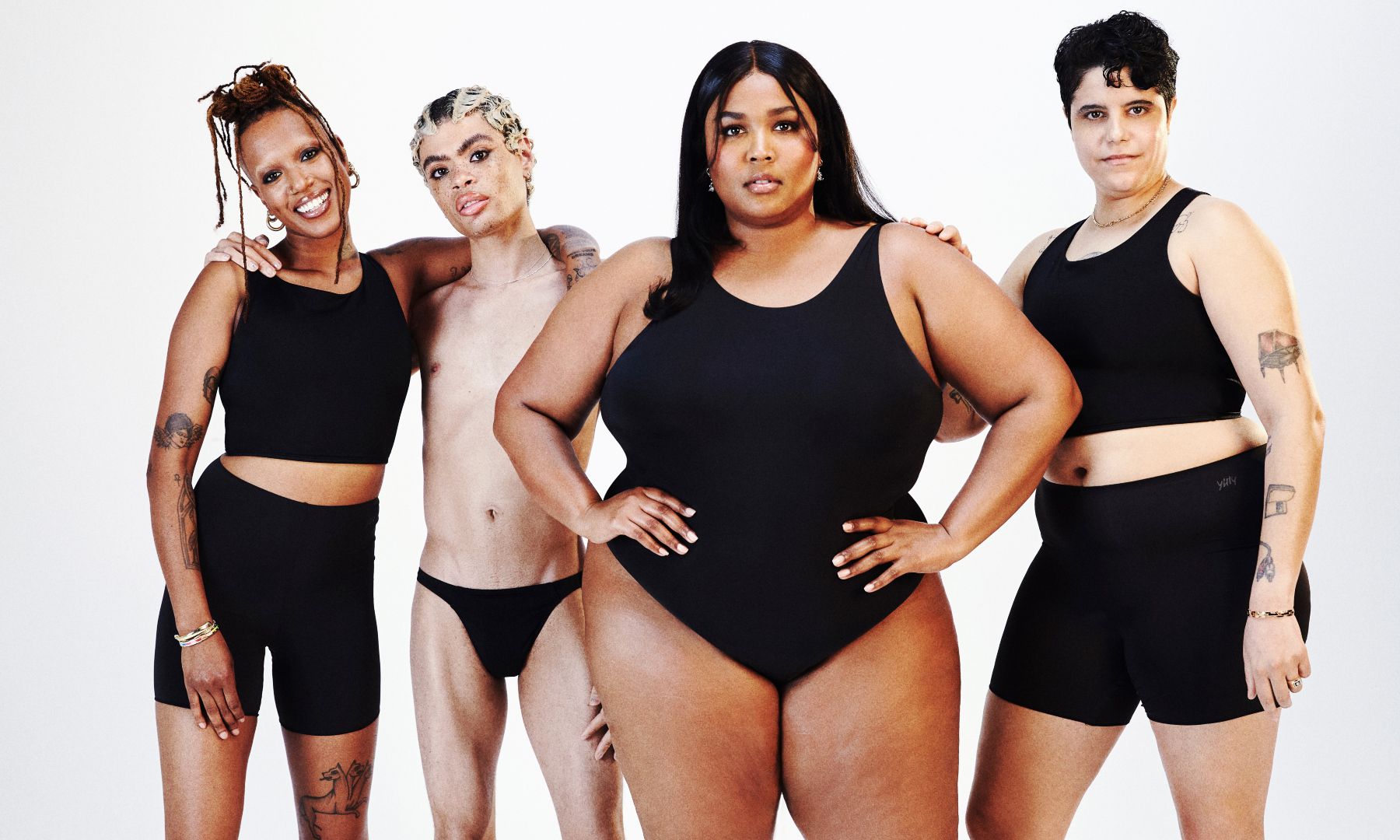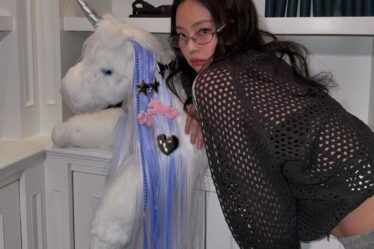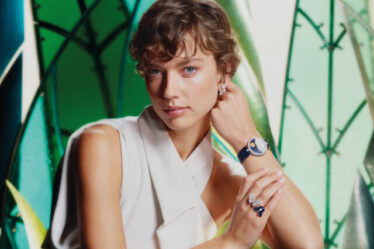
After a year in business, Yitty, the shapewear brand founded by Lizzo, the musician born Melissa Jefferson, is doubling down on its inclusivity ethos.
In August, Yitty will introduce a line of gender-neutral undergarments called Your Skin by Yitty. The collection will include tucking panties and binding tops targeted toward shoppers who identify as transgender, non-binary and gender non-conforming, a group of people who the brand says are currently underserved.
“We aren’t just making gender-neutral clothing. We’re creating a product that meets a real need,” Lizzo, Yitty’s founder and CEO, told BoF. “We’re way overdue for something like this. I’m finally in the position to do something about it.”
The line is also an opportunity for Yitty to widen its consumer base, especially as it seeks to grow sales to nearly $100 million this year.
Following its March 2022 launch — in partnership with activewear seller Fabletics — Yitty distinguished itself in the growing shapewear market with its form-hugging goods in prints and bold colours offered to all body types, with a size range of extra small to 6X. The company generated over $1 million in sales on its launch day.
Jefferson’s audacious persona, rooted in unabashed self-confidence and body acceptance, is responsible for much of that success. Short videos on social media, often shot on an iPhone, showing Jefferson in seductive poses wearing the brand’s body-revealing frocks, do more to lure fans to Yitty than more expensive and time intensive marketing efforts.
“We do these big budget campaigns and get all this glitz and glamour,” Lizzo said. “My highest engagement will be my phone propped up.”
But relying on a celebrity founder isn’t always a lasting strategy for brands. For every Rare Beauty or Savage x Fenty — the brainchilds of Selena Gomez and Rihanna — there’s numerous celebrity brands that failed to move the needle.
Some labels struggle to weather controversies, as Adidas has experienced with Ye, the artist formerly known as Kanye West’s Yeezy. Others simply fail to capitalise on the mystique of their founder. Beyoncé’s athleisure line Ivy Park reportedly missed its sales projections in 2022 by over $200 million, and Adidas is dissolving the partnership, according to The Wall Street Journal. Even stars with a proven ability to sell products can falter — LVMH shut down Rihanna’s Fenty apparel line two years after launch in February 2021.
Yitty seems to have overcome the hurdle of making an initial splash thanks to Jefferson’s self-confident approach, but to grow, it may need to look beyond the star at the centre.
“Lizzo’s presence with the brand, she’s really incorporated it and embodied it. There’s been a strong connection between the two,” said Nora Kleinewillinghoefer, an associate partner in fashion, luxury and retail at consulting firm Kearney. “That celebration of self has been a distinctive element for her.”
Dodging the Celebrity Curse
The brands that have fared well have lessened their reliance on their famous founders.
“It will get harder to create wow with the same celebrity,” Kleinewillinghoefer said. “Diversifying away from just one is a huge risk mitigation factor.”
Take Kim Kardashian’s four-year-old shapewear brand Skims. When the brand launched, the star was everywhere in its marketing. But in recent campaigns, it’s expanded its casting roster, featuring iconic supermodels like Tyra Banks and Heidi Klum, rising stars of HBO’s The White Lotus and pop star SZA.
For now, Lizzo said recruiting other famous faces to promote Yitty is not a priority, as the process is more emotional for her than a calculated business move.
“It will have to mean something, not just because people like famous people,” she said. “There has to be a real story and a real relationship. That’s the quality I hold myself to. I ain’t have no features on my album, and I’m still successful.”
It helps that Lizzo’s public persona is synonymous with an overarching message of self-acceptance, rather than simply her own star power. Initiatives like its gender-neutral offering will also assist Yitty in preserving short-term momentum, even with Jefferson as the sole face of the brand, experts say.
“[Yitty] needs to continue to show newness, and [Lizzo] can do that independently,” Kleinewillinghoefer said. “Keep innovating and listen to your consumer.”
Yitty plans do just that. Outside of its product expansion, the company will begin hosting virtual town halls, where Jefferson will discuss topics she’s most passionate about with consumers. The company currently hosts in-person events with the brand’s most loyal customers, where they test future products and provide feedback.
In the near future, Yitty also has its sights set on opening its own permanent brick-and-mortar stores to offer an even more personalised sales approach. (Yitty is currently sold in select Fabletics stores as well as through its own direct-to-consumer e-commerce operation.)
“You have to live in the future,” Lizzo said. “I don’t look to the left. I don’t look to the right. I look forward.”



